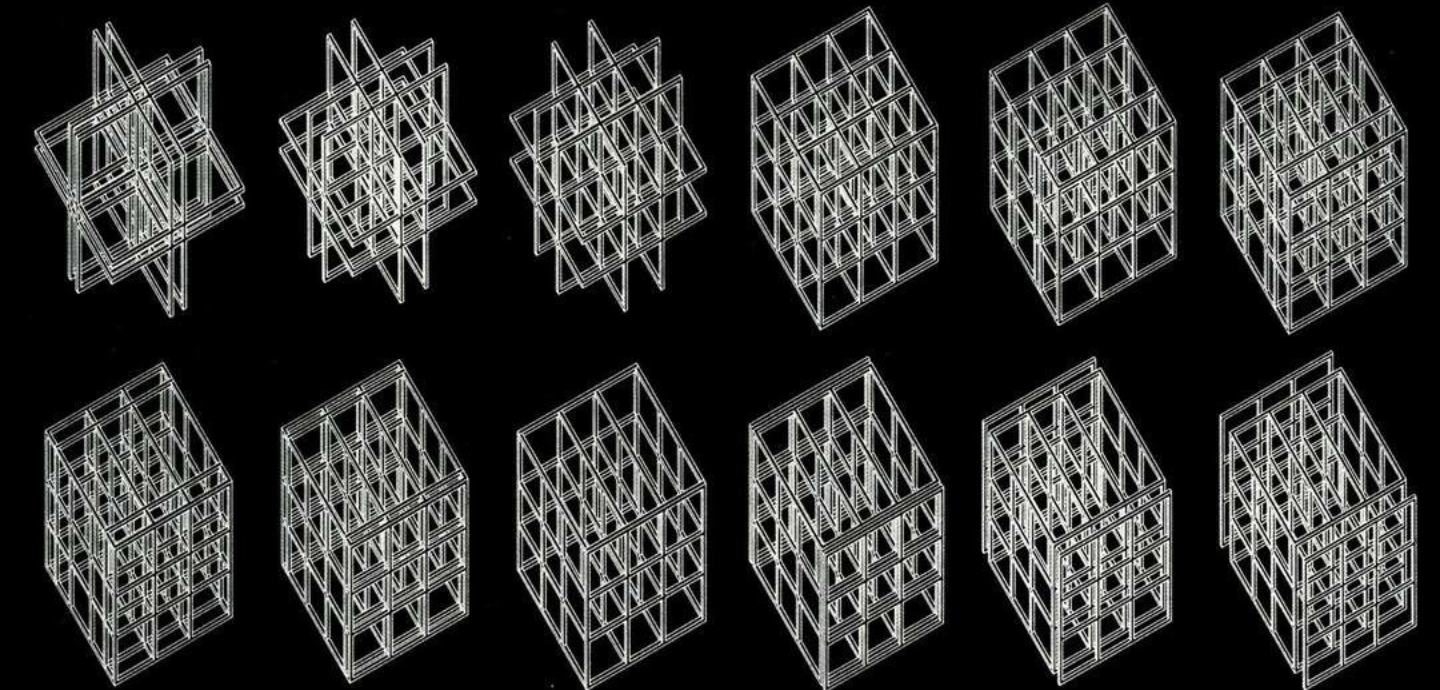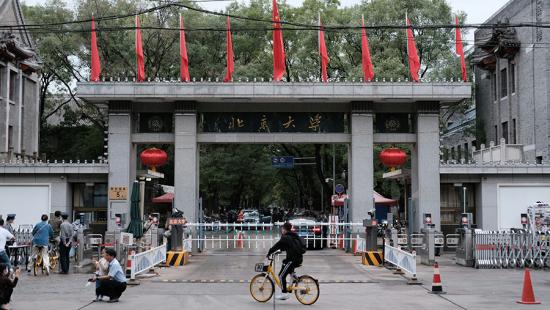Peter Eisenman: Eisenman Evolutions

image / provided
Peter Eisenman Lecture Series endowed by Elise Jaffe + Jeffrey Brown
Abstract
The Peter Eisenman Lecture Series endowed by Elise Jaffe + Jeffrey Brown will hold its inaugural event on April 26 at 5:45 p.m. in the Abby and Howard Milstein Auditorium. In the first of what will be an annual lecture, the Department of Architecture will welcome alumnus Peter Eisenman (B.Arch. '54) to launch the event. This mini-symposium, titled Eisenman Evolutions, will reflect on the oeuvre of the renowned theorist and practitioner over the course of several decades from the first-person perspective but will also consider how this work has evolved in the trajectory of three contemporary practitioners and educators: Anthony Titus, Ingeborg Rocker, and Caroline O'Donnell, speaking on the resistances and alignments with this work in their own through the lenses of art, technology, and environment, respectively.
Bios
Peter Eisenman (B.Arch. '54) is an internationally recognized architect and educator whose award-winning, large-scale housing and urban design projects, innovative facilities for educational institutions, and series of inventive private houses attest to a career of excellence in design.
Prior to establishing a full-time architectural practice in 1980, Eisenman worked as an independent architect, educator, and theorist. In 1967, he founded the Institute for Architecture and Urban Studies (IAUS), an international think tank for architecture in New York, and served as its director until 1982.
Eisenman is a member of the American Academy of Arts and Sciences and the American Academy of Arts and Letters. Among other awards, in 2001 he received the Medal of Honor from the New York Chapter of the American Institute of Architects, and the Smithsonian Institution's 2001 Cooper-Hewitt National Design Award in Architecture. He was awarded the Golden Lion for Lifetime Achievement at the 2004 Venice Architecture Biennale. Popular Science magazine named Eisenman one of the top five innovators of 2006 for the University of Phoenix Stadium, home of the Arizona Cardinals. In May 2010 Eisenman was honored with the Wolf Foundation Prize in the Arts, awarded in Jerusalem. He received the Gold Medal for Architecture from the American Academy of Arts and Letters in 2020.
Currently a visiting professor at the Yale School of Architecture, Eisenman's academic career also includes teaching at Cambridge, Princeton, Harvard, and Ohio State universities. Previously he was the Irwin S. Chanin Distinguished Professor of Architecture at The Cooper Union in New York City. He is also an author, whose most recent books include: Written Into the Void: Selected Writings, 1990-2004 (Yale University Press, 2007) and Ten Canonical Buildings, 1950-2000 (Rizzoli, 2008), which examines buildings by ten different architects in depth.
Eisenman holds a Bachelor of Architecture from Cornell University, a Master of Science in Architecture from Columbia University, and M.A. and Ph.D. degrees from Cambridge University (U.K). He holds honorary Doctorates of Fine Arts from the University of Illinois, Chicago, the Pratt Institute in New York, and Syracuse University. In 2003, he was awarded an honorary Doctorate in Architecture by the Università La Sapienza in Rome.
Anthony Titus is the founder of Anthony Titus Studio, an interdisciplinary practice that merges art and architecture. He received his undergraduate degree in architecture from The Cooper Union for the Advancement of Science and Art, and a graduate degree in fine art from the University of Chicago. He is currently an Assistant Professor of Architecture at Rensselaer.
Ingeborg Rocker is a senior executive of sustainable industry innovation and transformation. In 2014, she joined the international software company Dassault Systemes as the Vice President, where she developed sustainable cross-industry innovations from strategy to realization. Within this context, she launched the Smart City Project 3DEXPERIENCity, virtualizing Singapore City State, and developed cyber-physical systems with the manufacturing and construction industry, placing software and hardware in the loop for the enhanced simulation, optimization, automation, operation, and maintenance of assets and processes. Rocker's ongoing work focuses on sustainable cross-industry innovation fostering a circular economy.
Rocker is a practicing architect who worked as lead designer with Peter Eisenman on the Memorial for the Murdered Jews of Europe in Berlin. In 2006, she cofounded Rocker-Lange Architect, a research-focused architecture firm located in Boston and Hong Kong. The office works across scales on computer-generated sustainable product design, architecture, and urbanism. The office has been recognized for its written and design work emphasizing the role the digital medium plays in the conception and realization of sustainable cross-scale design interventions.
Caroline O'Donnell is the Edgar A. Tafel Professor of Architecture and Chair of the Department of Architecture at Cornell University. Her research and teaching areas are in ecological and contextual design and theory. She is a licensed architect and sole principal of CODA, winner of MoMA/PS1's Young Architects Program in 2013 with the project Party Wall. Recently built projects include an inclusive addition to the Saltonstall Foundation for the Arts and Valentine Student Housing in Ithaca, New York.
O'Donnell also leads the Ecological Action Lab, which experiments with nose-to-tail practices, novel materials, and the reimagining of the function of objects. Recent projects include Friendship WC, a water and plastic bottle chandelier for the 2022 Tallinn Biennial, Primitive Hut and Evitim, two pavilions at Art Omi, New York, in collaboration with OMG, using biodegradable, living, and leftover materials.
O'Donnell was the editor of the Cornell Journal of Architecture issues 8–10 and founding editor of Pidgin magazine. Publications include: Niche Tactics: Generative Relationships between Architecture and Site (Routledge, 2015), The Architecture of Waste: Design for a Circular Economy (Routledge, 2019) edited by Caroline O’Donnell and Dillon Pranger, and Werewolf: The Architecture of Lunacy, Shapeshifting, and Material Metamorphosis (AR+D/ORO Publications, 2022).
O'Donnell has previously taught at Harvard GSD and at the Irwin S. Chanin School of Architecture at The Cooper Union. Originally from Northern Ireland, she received her B.Arch. (specialization in bioclimatics) from the Manchester School of Architecture, England, and her M.Arch.II from Princeton University.
A reception in Milstein Hall Dome starting at 4:45 p.m. will precede the lecture.







